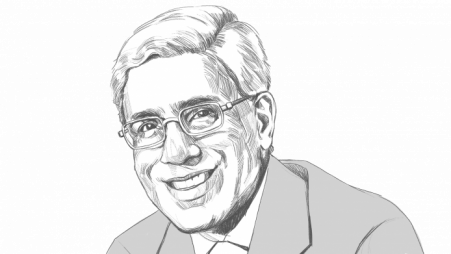The inside story of the ISI-Taliban nexus
What was the role of Pakistan’s Inter-Services Intelligence (ISI), and what do we know of the Taliban leadership?

The Taliban's dramatic sweep into Kabul raises two questions. What was the role of Pakistan's Inter-Services Intelligence (ISI), and what do we know of the Taliban leadership? Let me share what I've been told by Rana Banerji, a former special secretary of the Research and Analysis Wing (R&AW). Few people know more than him.
The Taliban came into existence in 1994 at the White Mosque, 50 km from Kandahar. It comprised devout Muslims determined to check extortionist gangs operating on Afghanistan's highways. Mullah Abdul Samad was the first emir. Mullah Omar, a Ghilzai Hotak, was a commander.
During the Soviet occupation of the 1980s, Omar was a member of Yunis Khalis's Hezb-i-Islami. A shrapnel injury left him blinded in one eye. Disgruntled by Mujahideen corruption, he retreated to religion. The Taliban was the next step.
When a Pakistan convoy was held up in Afghanistan, Major-General Naseerullah Babar, then interior minister, sought the Taliban's help. It worked and, in gratitude, Pakistan gave its support and aid.
Initially, the Taliban was also supported by Afghanistan's President Burhanuddin Rabbani. In his unceasing rivalry with Gulbuddin Hekmatyar, it was a useful tool. But Pakistani help was more important.
Colonel Sultan Amir Tarar, a former special services group officer, later consul general in Herat, provided military training. The ISI provided funds. A cache of arms, reportedly hidden in tunnels near Kandahar, was handed over.
The Taliban captured Kabul in 1996. Now, their dependence on Pakistan grew exponentially. Banerji says Pakistani "officers, plainclothes assistants and bureaucrats" were the spine of the first Taliban government. "Not only in Kabul but in the provinces as well". Five years later, when the Taliban was expelled, Pakistan opened its doors.
At Miran Shah, Peshawar and Quetta refugee camps and Shuras were set up. The Taliban took to drug smuggling and Pakistan looked the other way. When Iraq diverted American attention, the Taliban began returning and Pakistan provided assistance and protection. The Taliban's children studied in Pakistani schools, its injured were treated in Pakistani hospitals.

America knew but didn't react. Perhaps its dependence on the Karachi-Torkham supply route is the best explanation. Meanwhile, as Taliban control of the country expanded, so too did Pakistani munificence. Sir Richard Dearlove, the former head of MI6, has described the 2021 capture of Kabul as a Pakistani invasion fronted by the Taliban. So when Mullah Baradar flew into Kandahar, ISI chief Faiz Hamid crossed the border to greet him. Together they prayed at the White Mosque.
Now, to the second question.
What do we know of the bearded turban-wearing men who comprise the Taliban leadership? The present emir is Hibatullah Akhundzada, a Noorzai from Panjwayee, a district in Kandahar.
In Taliban 1.0, he was head of the Qazi courts. When Mullah Mansoor, the third emir, was killed, Akhundzada was the compromise choice. But, importantly, he was acceptable to the ISI. Banerji says he's a recluse. The BBC says there's only one picture of him.
Mullah Baradar is a blue-blooded Popalzai. He's one of the Taliban's three deputy commanders but the principal interlocutor in the Doha talks. It's said his wife and Mullah Omar's wife are sisters. Baradar, which means brother in Farsi, is the name Omar gave him. He spent eight years in Pakistani jails for proposing to speak to Karzai. Has he forgiven and forgotten or does it rankle?
The other deputy commanders are Mullah Yaqoob, Omar's son, who's the youngest and has close links with field commanders, and Sirajuddin Haqqani, whose group has attacked the Indian embassy.
The Haqqanis are India's chief concern. Banerji says their founder, Jalaluddin, a man with several wives and seven sons, once worked for the Americans. The Haqqanis only joined the Taliban after it first came to power. Though Jalaluddin served as a minister, it's said Hamid Karzai tried but failed to lure him. Today, the group is particularly beloved of the ISI.
Banerji says they "intimidate" the Taliban. Sirajuddin, the present head, is in-charge of security in Kabul. Do the ISIS attacks suggest he slipped-up or is complicit?
Karan Thapar is the author of Devil's Advocate: The Untold Story
Disclaimer: This article first appeared on Hindustan Times, and is published by special syndication arrangement.



 Keep updated, follow The Business Standard's Google news channel
Keep updated, follow The Business Standard's Google news channel















